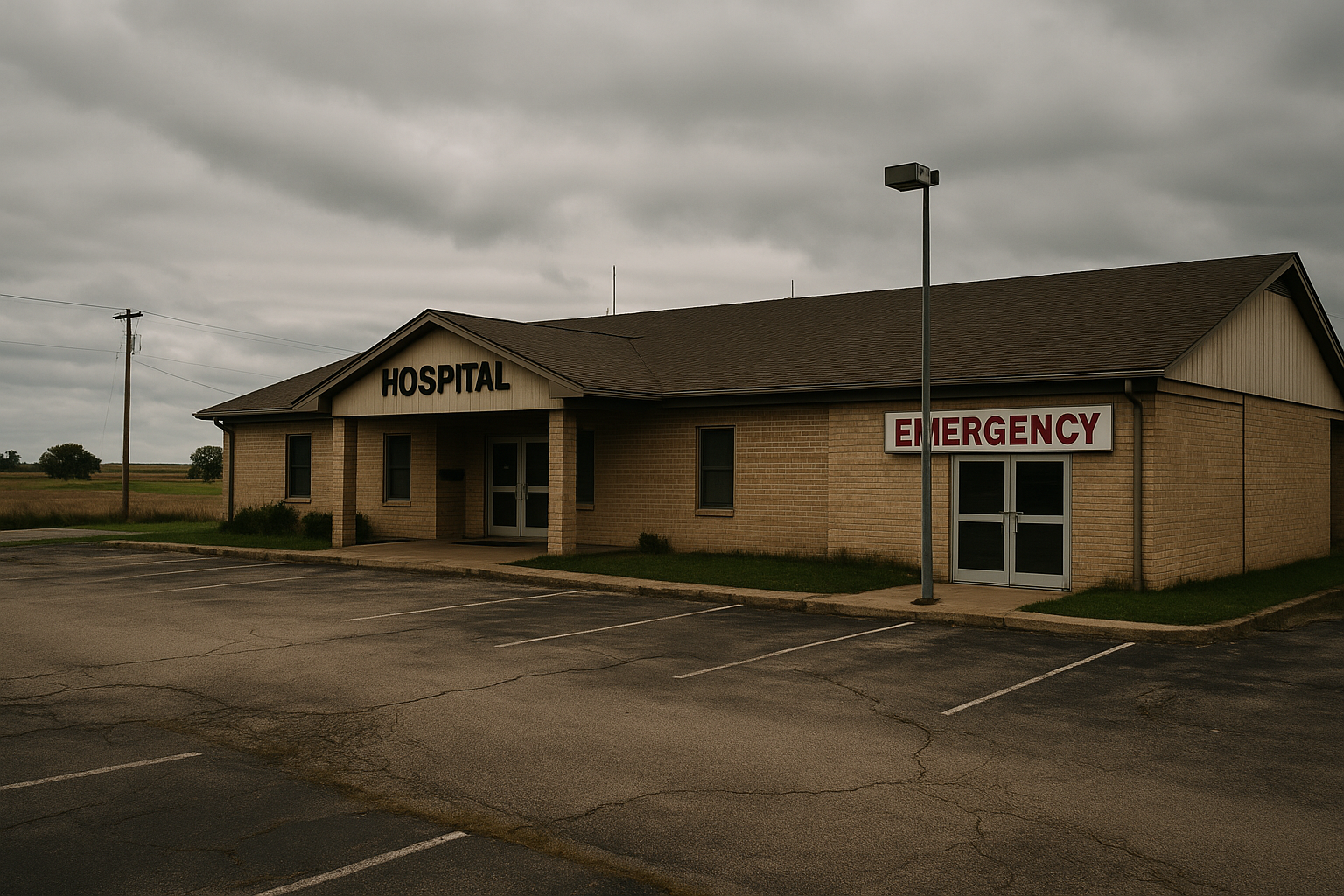Rural America faces rising health risks as hospital closures accelerate
Hospital closures continue to strike at the heart of rural communities, creating ripples that extend far beyond healthcare. The review found that closures force residents to travel significantly longer distances for care, often leading to delayed treatment and poorer health outcomes. Emergency services become stretched, and neighboring hospitals are left to absorb the overflow of patients, often without additional resources.

- Country:
- United States
Rural healthcare in the United States of America faces a growing crisis as hospital closures and mergers disrupt services, strain local economies, and reshape access to care, warns a new scoping review published in Medical Care Research and Review that sheds light on how these structural changes impact not just healthcare delivery, but the broader social and institutional ecologies that sustain rural life.
The study, “The Impact of Rural Hospital Closures and Mergers on Health System Ecologies: A Scoping Review,” introduces a novel analytical framework to map these outcomes and calls for policies that address widening rural health disparities.
The research maps how closures and mergers affect communities, hospitals, and health systems. It reveals that while closures have been widely studied for their devastating social effects, the impact of mergers remains underexplored, particularly in terms of patient outcomes and workforce well-being.
This study is both a warning and a call to action: securing the future of rural healthcare requires a holistic approach that balances economic realities with the health and well-being of the people these systems exist to serve.
How do hospital closures affect rural communities?
Hospital closures continue to strike at the heart of rural communities, creating ripples that extend far beyond healthcare. The review found that closures force residents to travel significantly longer distances for care, often leading to delayed treatment and poorer health outcomes. Emergency services become stretched, and neighboring hospitals are left to absorb the overflow of patients, often without additional resources.
Economically, closures weaken local labor markets. Job losses within hospitals spill over into other sectors, depressing local economies and driving population decline. Communities lose not just a healthcare facility, but also a critical social institution that anchors community identity and resilience.
The review highlights that closures disproportionately affect vulnerable populations, including older adults, low-income families, and those with chronic conditions. With fewer local resources, these groups face greater barriers to accessing care, widening existing health disparities.
Despite extensive research on closures, the authors point out that many studies focus narrowly on hospital finances and utilization metrics. The broader impacts on patients’ lived experiences, family dynamics, and long-term well-being remain underexplored. This gap underscores the need for more person-centered research to fully capture the human cost of rural hospital closures.
What are the consequences of mergers in rural healthcare?
While closures dominate much of the research landscape, the effects of hospital mergers, often seen as a strategy to preserve access, remain less understood. The review found that mergers frequently improve hospital financial stability by consolidating resources and streamlining operations. However, these financial gains often come at a cost.
Merged hospitals may reduce service lines, limit local autonomy, and centralize decision-making far from the communities they serve. These changes can diminish the availability of critical services such as maternity care or specialized treatments, forcing patients to seek care elsewhere. Yet, despite these operational shifts, little evidence exists on how mergers affect patient outcomes or community well-being.
The authors also note a glaring lack of data on how mergers impact healthcare workers, an essential component of rural health systems. Workforce morale, retention, and capacity remain underexamined in merger studies, even though these factors are critical for sustaining quality care.
By highlighting this knowledge gap, the study calls attention to the need for more comprehensive analyses that go beyond financial indicators. Policymakers and health system leaders need insights into how mergers affect the very people and places they aim to serve.
What framework does the study offer for future policy and research?
To address these gaps, the authors developed the Health System Ecologies Impact Matrix, a tool that categorizes outcomes across five domains, financial, workforce, utilization, well-being, and access to facilities and services, while distinguishing between effects on social (people, families, communities) and institutional (hospitals, markets, regions) levels.
This framework provides a holistic way to analyze the ripple effects of closures and mergers, offering policymakers a clearer understanding of where interventions are most needed. For example, the matrix reveals that while closures are often studied through their impact on communities, mergers have been analyzed primarily at the institutional level, leaving person-centered consequences largely invisible.
The study’s findings assert that protecting rural health requires more than financial stabilization. Strategies must also consider workforce dynamics, patient well-being, and the long-term resilience of rural communities. Investments in telehealth, regional partnerships, and targeted workforce support are among the measures that could mitigate the negative effects of hospital consolidation.
For researchers, the matrix offers a roadmap to fill the gaps in current literature. By adopting this multidimensional approach, future studies can provide the evidence needed to craft policies that strengthen rural healthcare rather than simply restructure it.
- FIRST PUBLISHED IN:
- Devdiscourse










